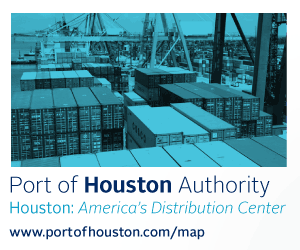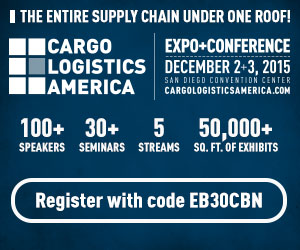|
The first containers of imported produce to undergo cold-treatment as part of a federal pilot program have arrived at the Port of Savannah—carrying tangelos from Peru.
"The Georgia Ports Authority is a new, valuable option to reach the U.S. Southeast for perishable goods," said GPA Executive Director Curtis Foltz. "By moving perishable cargo through the Port of Savannah, you can reach customers faster, save on transit costs, and take advantage of unmatched assets such as on-site inspection and the nation’s most comprehensive refrigerated cargo infrastructure."
The tangelos, moved from Andean Sun Produce farms in Ica, Peru, are part of a U.S. Department of Agriculture pilot program, in which citrus, grapes and blueberries are chilled for at least 17 days prior to entry into the U.S. to protect against fruit flies. Removing potential pests via cold treatment reduces the need for pesticides.
The process may be done in producing countries – including Peru, Chile and Brazil – or at transshipment points such as Panama. The fruit will move in refrigerated containers held just over freezing during
|
transit aboard cargo vessels, effectively cutting the time fruit must remain stationary for treatment.
"The importation of citrus products after successful cold-treatment while in-route from South America highlights U.S. Customs and Border Protection’s commitment to working with federal, state, and trade stakeholders," said CBP Savannah Area Port Director Lisa Beth Brown. "These combined efforts resulted in successful innovation and trade facilitation without compromise to CBP’s mission to protect domestic agriculture from potential introduction of harmful pests and disease."
Savannah’s Garden City Terminal offers 84 refrigerated container racks and 733 chassis plug-ins, powering 2,749 refrigerated boxes at a time. Another 20 racks should be complete by the end of the year, adding 480 refrigerated container slots.
Besides faster delivery, the USDA program also cuts logistics-related emissions by reducing truck miles and allowing more efficient shipments. Previously, deliveries of South American produce were made to Northern U.S. ports, and then trucked down to states like Georgia, Tennessee and the Carolinas.
|



